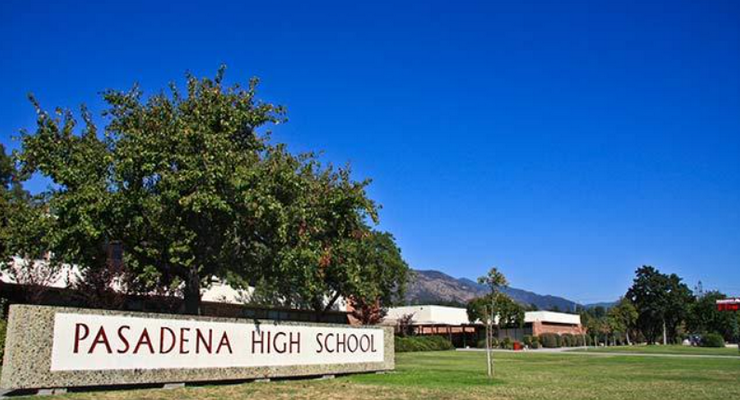
The virus stayed on the front page of every major newspaper in the nation for the next year — from the virus through the economic recovery.
In total, the City has reported 478 COVID-related deaths. Local businesses were forced to close their doors and many business owners struggled to remain afloat after the COVID crisis ended.
Fast forward five years, and the City again finds itself in the midst of an economic recovery, this time from the disaster caused by the Eaton Fire.
Seventeen people died in the fire, all from nearby Altadena, and 9,000 structures were destroyed. More than 14,000 acres were scorched making it one of the most deadly and destructive fires in the state’s history.
However this time, the Convention Center was used to house more than 1,000 people displaced by the fire.
A location the City planned to use as an overrun facility if local emergency rooms reached capacity during the virus.
And like the virus, the fire has had a tremendous impact on local businesses.
According to a presentation presented to the EDTECH Committee in late January, 123 businesses have reported significant financial loss due to the Eaton Fire and Windstorm incident.
The survey was released to 12,000 business license holders in the City on Jan. 24.
The City continues to provide extensive support to businesses and individuals impacted by recent fires, offering guidance, resources, and direct assistance to help them recover.
The fires caused a range of impacts for businesses, including property damage from ash, debris, and fallen trees, as well as revenue losses due to decreased customer traffic.
Many business owners have also faced personal losses, with some losing their homes or dealing with staff displacement as a result of the fires.
An additional 81 businesses said they have suffered minor financial impacts.
Before his State of the City speech last month, Mayor Victor Gordo told Pasadena Now that he was reflecting on the pandemic during the wind and fire crisis.
“I reflected on the similarities and differences existing during the COVID crisis and today’s crisis,” Gordo said. “During COVID, I felt prepared and, frankly, grateful to be in a position to play a role in guiding our community during such a difficult time. COVID had such a tremendous impact on every aspect of our life: COVID represented a health, housing, and economic crisis that also surfaced long-standing social justice and equity issue(s) that for far too long went unaddressed and left to fester but with the advent of the vaccine we all began to see a light at the end of the tunnel. The fires and resulting devastation also present a health, housing and economic crisis.”
But according to Gordo, the fire crisis also presents a cultural and permanent physical alteration to our community. How we manage the challenges before us will determine every aspect of the future of the Pasadena and Altadena community we all love and cherish.”
Restaurant owner Gale Kohl, owner of Gale’s Italian Restaurant said during COVID there was a feeling of uncertainty.
“It took us months to be able to rally to get out the message that we were still here and we were around for the community. With the fire, this was an immediate tragedy. We knew who was affected and once the smoke had cleared, there were ways that we could participate in helping others and be open for those that needed a place to go.
“Sadly, because entire cities were affected, many did not want to go out and so many people were made to move to other places…. For the first month, which normally is a very good month for us, the outlook was very bad. We lost, like with COVID, a lot of money. Not only did we lose sales, we tried to contribute back to those in need. We spent a lot of money. We did all of that through COVID as well but nothing so stark and immediate.”
Kohl said its an increasingly tough time in the industry.
“Honestly, I ask myself every day if I’m doing the right thing,” she said. “We have been hit with higher wages, higher prices and trying to find employees in a field where we really rely on our wonderful staff that comes from all over the world and is in danger of being deported. Considering so many of them were affected by the fires, we are lucky to still have a full staff.”
The impact on local businesses, also impacts the City. Finance Director Matthew Hawkesworth, said there is one major difference in the impact on local economics.
“My initial perception is that in the few days when the fire started and immediately after, many of our business districts, retail stores, and restaurants were incredibly slow or businesses chose to close temporarily, which felt like when everyone stayed at home at the start of COVID,” Hawkesworth told Pasadena Now. “The largest single economic difference between those two disasters is that during COVID hotels and motels were virtually empty and some even chose to close temporarily. With the windstorm and fire, all the hotels and motels were operating at maximum capacity.”
By the end of 2020 the City lost more than $5 million in hotel taxes alone.
“I hear people in our industry talking about moving to other states because it feels like we cannot get ahead,” Kohl said. “I think that if we stay and work through this, we will persevere. My advice to others is to trust and be a part of the community. If we support them, they will support us. Do what we can. It may take a while for business to come back, but it will. We saw that with COVID.”


















